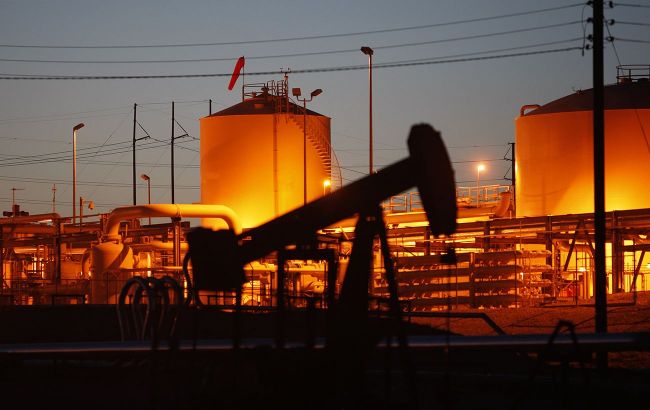Tankers sanctioned by U.S. supplied Russian oil to India - Reuters
 Photo: Tankers sanctioned by the U.S. for transporting Russian oil (Getty Images)
Photo: Tankers sanctioned by the U.S. for transporting Russian oil (Getty Images)
Three oil tankers that fell under new Washington sanctions have been regularly delivering Russian Sokol crude oil to India in recent months, writes Reuters.
On November 16, the United States imposed sanctions on maritime companies and vessels for transporting Russian oil sold above the price threshold of the Group of Seven (G7) at $60 per barrel, as Washington seeks to close loopholes in the mechanism aimed at punishing Moscow for the war against Ukraine.
The U.S. Department of the Treasury imposed sanctions on three companies based in the UAE and three vessels owned by them. The sanctioned companies are Kazan Shipping Incorporated, Progress Shipping Company Limited, and Gallion Navigation Incorporated, and the vessels under the Liberian flag are Kazan, Ligovsky Prospect, and NS Century.
According to LSEG data, all three Aframax-type tankers unloaded Russian Sokol crude oil in India in September, and two of them made a voyage in October. The NS Century vessel is currently on the way to unload Sokol crude oil in Vadinar, India.
Sokol crude oil is produced at the Sakhalin-1 project, managed by Rosneft's subsidiary after ExxonMobil's exit. Other shareholders include Indian ONGC Videsh, the foreign investment unit of the state-owned Oil and Natural Gas Corp, and Sakhalin Oil and Gas Development Co (SODECO), a consortium of Japanese firms.
Price ceiling
The United States, other G7 countries, and Australia imposed price ceilings in December of last year, seeking to reduce Russia's income from oil exports by sea as part of sanctions for its invasion of Ukraine.
Although the oil restrictions have been in place for about a year, aimed at limiting the Kremlin's oil revenues, high global oil prices this year and Moscow's use of a growing fleet of shadow tankers have led to a significant portion of Russian oil trading above the limit.
In recent months, global oil prices have risen to around $85 per barrel due to production cuts and depletion of global production capacities. This has limited the effectiveness of the ceiling, but the coalition may strengthen its enforcement to make it more effective, according to sources consulted by the US Treasury.
Moscow's revenues
The export of Russian oil and oil products in October fell by 70 thousand barrels per day to 7.5 million barrels per day, according to the report of the International Energy Agency (IEA).
According to the IEA, export revenue dropped by $25 million to $18.34 billion, while prices for Russian oil and oil products mostly exceeded the price ceiling of the G7 countries.
The actions on November 16 occurred after the U.S. imposed the first sanctions in October on owners of tankers transporting Russian oil above the limit, one in Turkey and one in the United Arab Emirates.
A senior representative of the Ministry of Finance then warned that Washington would take measures in the coming weeks and months to increase Russia's expenses and weaken its ability to sustain the war against Ukraine.
U.S. reaction to exceeding the price ceiling
U.S. Treasury Secretary Janet Yellen stated that Washington is preparing to take tough measures for violating the established price ceiling on oil.
According to Reuters, the U.S. Treasury Department has requested information from shipping companies in about 30 countries regarding approximately a hundred vessels suspected of transporting Russian oil above the price ceiling.

